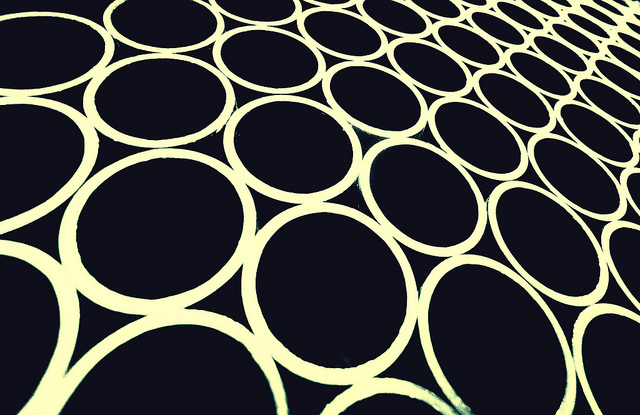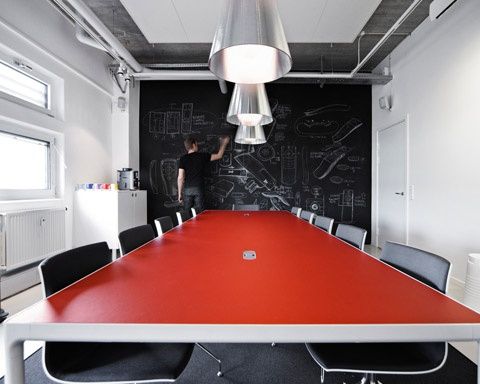Low-Cost versus Innovation - Contrasting Outsourcing and Integration Strategies in Manufacturing is a great breakdown on two outsourcing strategies; low-cost-oriented outsourcing and innovation-oriented outsourcing. Pro’s and cons are discussed and empirical evidence evaluated at a number of firms. An excellent breakdown!
Tuesday 30 August 2016
Low-Cost versus Innovation. Can you outsource design innovation? Yes.
Design and particularly innovation is expensive. In 2016, a typical industrial designed product costs minimum $250K to launch. Can this be minimized? Yes.
Low-Cost versus Innovation - Contrasting Outsourcing and Integration Strategies in Manufacturing is a great breakdown on two outsourcing strategies; low-cost-oriented outsourcing and innovation-oriented outsourcing. Pro’s and cons are discussed and empirical evidence evaluated at a number of firms. An excellent breakdown!
Low-Cost versus Innovation - Contrasting Outsourcing and Integration Strategies in Manufacturing is a great breakdown on two outsourcing strategies; low-cost-oriented outsourcing and innovation-oriented outsourcing. Pro’s and cons are discussed and empirical evidence evaluated at a number of firms. An excellent breakdown!
#Design by
iGNITIATE
Tuesday 23 August 2016
Snowboarding to Innovation – Designing Breakthroughs When None Existed Before
How many times did your grandparents see
snowboards when they were children? Never. How about your parents? Possibly never. Design is how the slopes are full of boarders today. But How?
Now a multi billion dollar per year business Product Development and Changing Cultural Landscapes— Is Our Future in Snowboardinggives the full breakdown of how a new industry has changed the way we take our ski holidays, how we look at sport, clothes, accessories and even lifestyles. Is that an innovation? 2 ski’s to 1? Check the bank accounts of those manufacturing and product design firms that did it.
Now a multi billion dollar per year business Product Development and Changing Cultural Landscapes— Is Our Future in Snowboardinggives the full breakdown of how a new industry has changed the way we take our ski holidays, how we look at sport, clothes, accessories and even lifestyles. Is that an innovation? 2 ski’s to 1? Check the bank accounts of those manufacturing and product design firms that did it.
#Design by
iGNITIATE
Tuesday 16 August 2016
Creativity + Exploiting R&D – How to Get ROI Straight Out of Design
How can you extract short-term R&D output and long term R&D
exploration of new technological goals? Focus on technological change, and
second the control of complementary assets in the dominant design.
And when that fails, innovate. Here’s how you can use Creativity for the Exploitation of R&D and the tools and techniques that foster the breakthroughs necessary to grow organizations to their fullest.
And when that fails, innovate. Here’s how you can use Creativity for the Exploitation of R&D and the tools and techniques that foster the breakthroughs necessary to grow organizations to their fullest.
#Design by
iGNITIATE
Tuesday 9 August 2016
Design in the Boardroom? Yes, and Here's How
Today
an interesting article became available regarding design and the
boardroom. From the perspective of "newness" it is the design team the
defines this. Some have also argued that it comes from the marketing
team, and the sales team and yes it does. However the larger question,
and most often overlooked is for what TIME FRAME do these two
departments have influence over product offerings and to what level of
effectiveness do these teams contribute to the longevity of a firms
position in the market.
The
simple argument, the COO is responsible as CMO and CTO functions
reporting into the COO are effectively combined with design to form the
basis for timely development. HOWEVER shifts have begun to emerge in
many firms where positions such as the Head of Global Product
Development are being offered seats at the board for the simple purpose
of expanding the often limited scope of the 6mo, 1yr, and 2yr
strategic plans typical when COO, CTO and CMO discussions are had at
the board level. This ISDA article on Design in the Boardroom sets a good indication of how this is happening.
#Design by
iGNITIATE
Tuesday 2 August 2016
What Makes a Design Leader: Social Intelligence + Creative Performance
But
that’s not all. It’s the synergy that glues it all togerher. The challenge
however is in fact empathy. In measuring almost 300 people, in multiple
disciplines and verticals the challenges and criteria’s became simple.
When
looking at know how an individual is feeling; what an individual is thinking;
understand the moods of people; understand people’s feelings transmitted
through nonverbal messages; know when people disguise their true feelings,
design takes on a whole other form. In What
Makes a Design Leader – Social Intelligence + Creative Performance an
entire criteria is extablished and rigerouly measured against
#Design by
iGNITIATE
Tuesday 26 July 2016
Too Many Cooks Spoil The Broth: Roles in Inter-Organizational Innovation
Size,
Shape, and Attitude Define Success. But what is the optimal number of inter
organizational members when it comes to breaking the mold and pushing
innovation. Surprisingly the number is 4.

In
Too Many
Cooks Spoil The Broth: Roles in Inter-Organizational Innovation a
substantial sample size and effective team size matrix was created to cross
reference and integrate the key players in innovation success: Power promoter;
Expert promoter; Process promoter; Technological gatekeeper; Relationship
promoter. An excellent assessment of personalities necessary.
#Design by
iGNITIATE
Tuesday 19 July 2016
But What of Service Engineers – How Does Design Effect Success?
The
factors overlooked are not complicated and here we breakdown the outcomes of 14 case
studies for success in service engineering for design success

Industries
such as entertainment, traveling and hospitality, personal care, information,
and communications in Assessing
Creativity Of Design Projects: Criteria For The Service Engineering Field
all share a basic tenant which is that measuring the quanitative factors for
service engineering design success is a factor of perceived customer acceptance
of pre-determined solutions and social conformity. Baring the rocket engine
efficiency situations, Deisgn for Service Engineering success is client driven. What the client says, goes.
#Design by
iGNITIATE
Tuesday 12 July 2016
What 4 Factors Drive the Entire Innovation Process? Limiters. Here’s How To Break Them.
Designers
focus on creativity but there is more. Limiting factors and risk are what stop
good ideas from becoming great ideas. But there are ways to overcome
barriers.
Barriers
can be self imposed, they can be governmental and often regulatory but often it
is the human factors that can impact design and innovation more than any other
factor. In Perspectives
On Design Creativity And Innovation Research a full breakdown of human
factors, technological factors, economic factors and relagatory factors are
compared so as to see their interactions and the ways these interactions can
assist or defeat the capabilities of design and new product initiatives.
#Design by
iGNITIATE
Tuesday 5 July 2016
Look where Innovation Would Disappear: That’s Where They Can Live
Looking
for breakthroughs is often the place where you are sure that they can’t be any
slower or glacier. The US Navy. But that was before, before a radical group was
not only given the chance to try new things but also forced the establishment
to let them.
In
How to Build A Culture of Originality, we see the underpinnings of not only
the personality of innovators at the US Navy but also an organization that
previously might shun such behaviors, opening possibilities for small groups to
try new things. These Innovation
Cells written extensively by Burkard Wördenweber, and Uwe Weissflog has
even permeated the Navy who has created their own Innovation
Cell program. These cells, operating at a highly, seemingly disconnected
manner, are able through periodic coordination with engineering, R&D,
design and operations to not only create rapidly morphing problem solving. In
thinking that where innovations go to die might be a place to avoid, the
mathematical law of absolute value might be the place where the most benefit
can occur.
#Design by
iGNITIATE
Subscribe to:
Posts (Atom)
---












